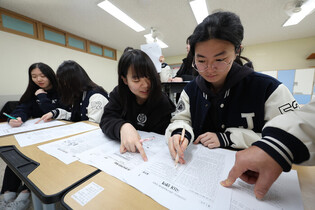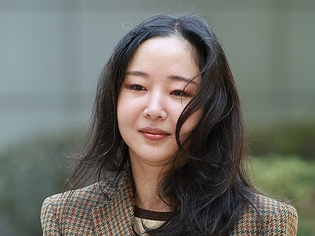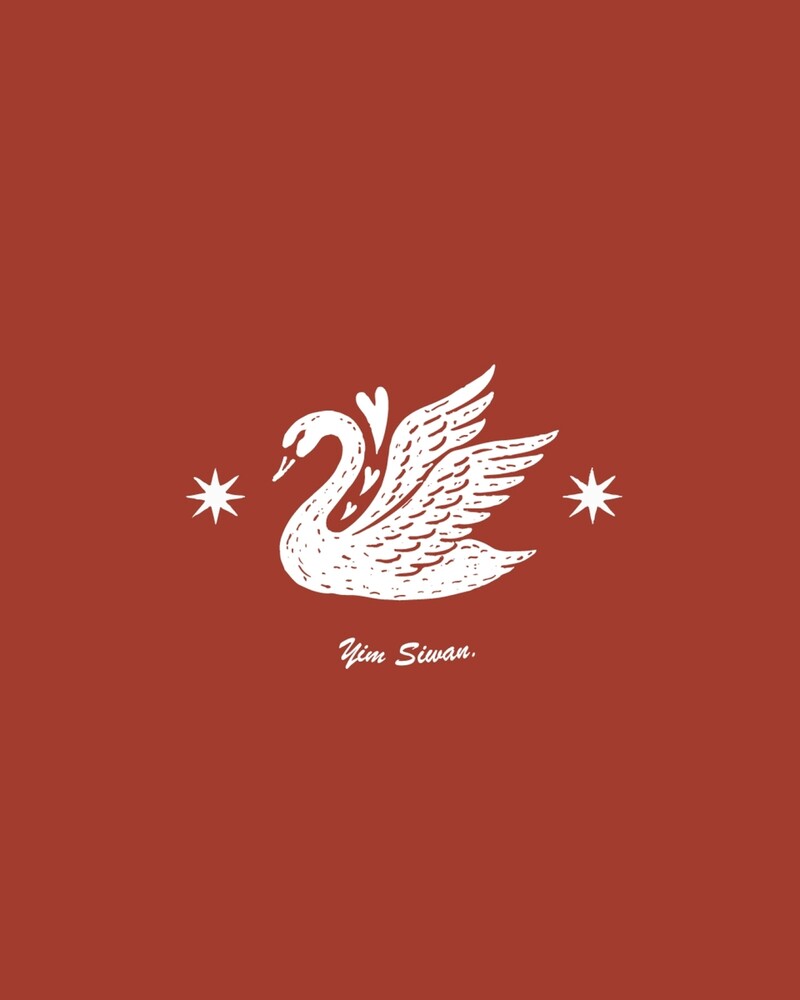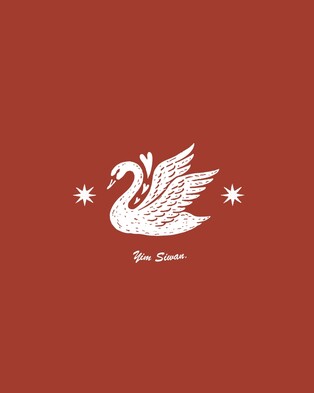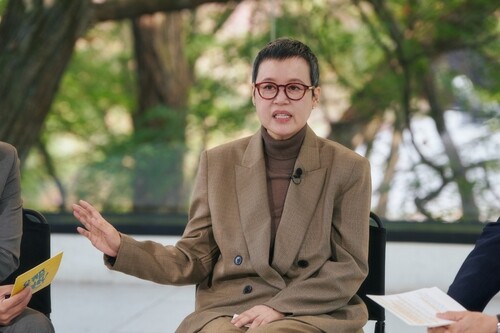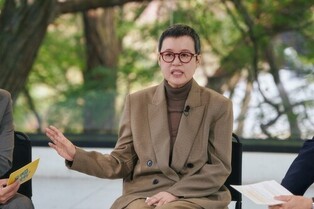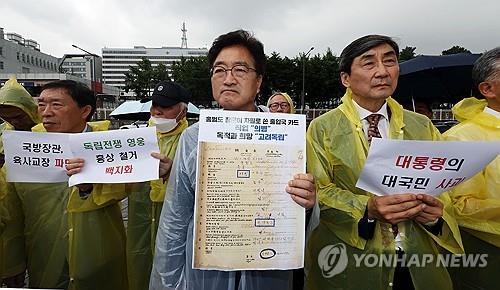 |
| ▲ Rep. Woo Won-shik of the main opposition Democratic Party (C) holds a press conference in front of the defense ministry headquarters on Aug. 30, 2023. (Yonhap) |
opposition party-independence fighter
Opposition lawmaker calls for dismissal of defense minister over independence fighter statue controversies
SEOUL, Aug. 30 (Yonhap) -- An opposition lawmaker on Wednesday demanded the dismissal of Defense Minister Lee Jong-sup for advocating the relocation of the bust of revered independence fighter Hong Beom-do, saying that the move amounts to a "historical coup."
The ministry has been considering relocating the busts of Hong from the Korea Military Academy in northern Seoul and the defense ministry headquarters to the Independence Hall of Korea in Cheonan, 85 kilometers south of Seoul, citing his past record of collaborating with Soviet communist forces and associations with communism.
"It is aimed at building a country for pro-Japanese collaborators by removing independence fighters, who are the root of our soldiers," said Rep. Woo Won-shik of the main opposition Democratic Party during a press conference held in front of the ministry headquarters in Seoul.
Woo serves as the head of a foundation commemorating Hong.
Regarding the ministry's assertion that Hong joined the Soviet Communist Party in 1927, Woo argued that this is an ideological interpretation when viewed from a modern perspective and "amounts to a historical coup."
Critics have said that the relocation move is a narrow-minded decision that slights one of the country's best-known independence fighters and could end up worsening deep social divisions.
Supporters of the relocation argue that Hong is undoubtedly a legendary independence fighter, but the Korea Military Academy and the defense ministry are not the right places for busts of Hong in a Soviet military uniform.
Hong is a historic and highly symbolic figure in Korea's fight against Japan's 1910-45 brutal colonial rule. As top commander of Korea's liberation army, he spearheaded victories in battles against Japanese forces. Especially well known is the Battle of Fengwudong in Manchuria, China, in 1920.
The following year, he moved to the Soviet Far East, seeking refuge from Japan's hunting operation.
Some historians have pointed out that Korean independence fighters at the time had no alternative but to seek support from communist countries to sustain their struggle against Japanese colonial rule.
Hong was forced to relocate to Kazakhstan in 1937 under then Soviet leader Joseph Stalin's policy, along with many other ethnic Koreans. He died at the age of 75 in the Kazakh region of Kyzylorda in 1943, two years before Korea's liberation.
(END)
(C) Yonhap News Agency. All Rights Reserved

















